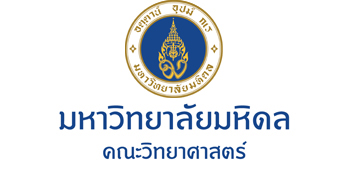

60 Year Logo of Faculty of Science

1. Global and Entrepreneurial Education To develop science and technology curricula and nurture graduates for globally accepted international standards of research skills and entrepreneurial skills.
2. World-Class Research To produce high-quality research output with globally accepted international standards.
3. Knowledge for All Mankind To transfer knowledge and technology for the well-being of society.
4. Innovation for Developing the Country To create innovation, intellectual property, and academic services, increasing income for the economic benefit of the Nation.
5. Sustainable Organization To manage the organization with good governance, financial stability, smart citizenry & global talents, digital transformation, and brand strength, moving towards the SDGs.
 Royal Blue Pantone
Royal Blue Pantone
C100 M84 Y12 K4
Royal Blue Pantone 286 C
R0 G53 B173
HTML 0035AD
 Pantone
Pantone
C2 M24 Y90 K0
Pantone 123 C
R255 G199 B38
HTML FFC726
 Pantone
Pantone
C33 M46 Y100 K10
Pantone 1255 C
R170 G128 B14
HTML AA800E
Introduction to the Faculty of Science
 The Faculty of Science was founded as a Premedical School in 1958 by Professor Dr. Stang Mongkolsuk, and took the name of Faculty of Science, Mahidol University in 1969 with 3 main objectives ;
The Faculty of Science was founded as a Premedical School in 1958 by Professor Dr. Stang Mongkolsuk, and took the name of Faculty of Science, Mahidol University in 1969 with 3 main objectives ;
1. To continously develop graduates, scientific and technological personnel who have the highest expertise and ethical standards to serve the societies and the country,
2. To generate research of international standard and offer services of international quality and standard to every level of educational institution, as well as to transfer knowledge and appropiate technology to the public for the benefit of sustainable development of every community and all mankind,
3. To instigate in students as well as faculty staff discipline, ethics, professional codes of conduct, and maintenance of the country's cultural heritage.
The faculty is located on Rama VI Road, Ratchathewi District. The faculty is responsible for teaching science to all first year undergraduate students of the university, presently numbering 4,485 students per year, using its facilities at the Salaya Campus, and also assists in teaching second year students in the allied health sciences and medicine.
 The Faculty of Science offers B.Sc. programs in seven disciplines, namely Chemistry, Biology, Biotechnology, Mathematics, Plant Science, and Physics, to a total of some 360 students per year.
The Faculty of Science offers B.Sc. programs in seven disciplines, namely Chemistry, Biology, Biotechnology, Mathematics, Plant Science, and Physics, to a total of some 360 students per year.
The Faculty also has very strong, well-established international graduate programs, 17 programs at Master's level and 17 programs at Ph.D. level, in various scientific disciplines. There are about 600 students at Master’s level and 400 at the Ph.D. level. The Faculty is one of the most prestigious institutes for research and post–graduate training in Thailand and ASEAN.
 The Faculty of Science places a strong emphasis on research, not only as part of the thesis work for graduate programs, but also as an ongoing commitment to international scientific advancement and national development. This serious and sustained emphasis on research has created an excellent academic atmosphere within the Faculty, which has allowed staff to compete successfully for grants, both nationally and internationally, and to perform work of excellent quality.
The Faculty of Science places a strong emphasis on research, not only as part of the thesis work for graduate programs, but also as an ongoing commitment to international scientific advancement and national development. This serious and sustained emphasis on research has created an excellent academic atmosphere within the Faculty, which has allowed staff to compete successfully for grants, both nationally and internationally, and to perform work of excellent quality.
Moreover, staff from the Faculty have won numerous awards for their outstanding research work at the national, regional and international levels. Staff at the Faculty have also performed many administrative and advisory functions in various academic organizations at the national, regional and international levels.
Currently, the Faculty of Science consists of 12 departments: Anatomy, Biochemistry, Biology, Biotechnology, Chemistry, Mathematics, Microbiology, Pathobiology, Pharmacology, Physics, Physiology, and Plant Science. The Faculty of Science currently has a total of 647 staff, with 273 being academic staf (229 at doctoral level, 47 at Master's level, and 15 at Bachelor's level), 94 teaching assistants, 222 supporting staff and 109 employees.
The Teaching and Learning
 The Faculty of Science is responsible for teaching about2,179 undergraduate students majoring in Faculty, 622 Master's students and 413 Doctoral students. In addition, the Faculty offers courses in Basic Sciences and English to all first year undergraduate students of the university, as well as to second year undergraduate students of some faculties, amounting to another 4,485 students.
The Faculty of Science is responsible for teaching about2,179 undergraduate students majoring in Faculty, 622 Master's students and 413 Doctoral students. In addition, the Faculty offers courses in Basic Sciences and English to all first year undergraduate students of the university, as well as to second year undergraduate students of some faculties, amounting to another 4,485 students.
The Faculty also teaches preclinical science subjects to medical students from Ramathibodi Hospital and Bangkok Metropolitan Administration Hopital.
Research Areas
Faculty of Science, Mahidol University is a key player in advancing scientific discovery in Thailand. Research and graduate studies are our major strengths and vital activities.
Research standards at our Faculty are internationally recognized to be at the cutting edge of scientific discovery. We publish about 400 peer-reviewed papers annually in reputed journals, more than half of these in top-tier (first quartile) journals.



In addition to high quality fundamental research, we also focus on creating innovative applied technology solutions for economic, health and social development in Thailand. Such applied research at our Faculty can be classified into the following areas.
1. Aquaculture (Shrimp, fish, abalone, sea cucumber)
Knowledge relevant to aquaculture and biology, with special emphasis on economically important marine resources such as shrimp, fish, abalone, sea cucumber, etc.
Development of diagnostics and disease prevention technology.
2. Agricultural and Food Technology
Improvement of crop and agricultural production.
Development of food processes, quality and security.
Detection methods for food safety and healthy food.
3. Conservation, Ecology and Environmental Science (Animal, plant, insects, microbes)
Conservation and sustainable utilization of natural resources and biodiversity.
Environmental protection and remediation.
4. Biomass and Bioresource Technology (Biocatalysis, biorefinery, bio-based chemical, bioenergy, bioactive compounds, green processes)
Development of biocatalysts in the forms of enzymes or whole cells for green and clean production
Conversion of low value biomass into value-added compounds
Bio-systems for bioenergy and biofuels.
Development of bioactive compounds from natural products
5. Material and Polymer (Smart materials, nanomaterials, rubber, polymer and bioplastics)
New synthetic and catalytic methods for chemical and material preparation.
Development of specialized materials or nano-materials for industries.
Improvement of physical and chemical properties of natural polymer and rubber.
6. Diagnostics and Sensor Technology (Sensors, diagnostic kits, high throughput detection, lab-on-chips)
Development of sensors, robots and smart devices for utilization in medical diagnostics, agricultural farming and production control.
Diagnostics kits and analytical technology for convenient detection and quality control of food, cosmetics and environmental contamination.
7. Aging Diseases and Noncommunicable Diseases (Neurological disorders, cancers, metabolic syndromes, bone and muscle diseases)
Causes and mechanisms of noncommunicable and aging diseases development.
Development of prevention and early diagnostics methods for noncommunicable and aging diseases
8. Emerging, Infectious diseases and Parasites
Knowledge associated with emerging and remerging infectious diseases.
Development of prevention and new therapeutic guidelines for infectious diseases.
9. Therapeutic Technology (Stem cell, vaccine, medicinal chemistry and natural product, drug development)
Development of new therapeutic technology, biopharma and drugs.
High throughput screening for finding new medicines against disease targets.
10. Systems Biology
Data science, analysis and mining for development of new understandings in biology.
Systems analysis for understanding cellular and network communication and control.
11. Computational Modeling and Simulations
Utilization of computational power and theoretical knowledge for understanding fundamentals of biological and physical systems
12. Earth and Cosmic Science
Basic knowledge and data analysis of earth, cosmic and astrophysics information.
Monitoring of geological changes and effects from climate change.
13. Science Education
Development of new teaching and learning tools for promotion of transformative learning and 21st century skills.
Leading researchers
Apart from teaching, all faculty members also concentrate on research work. So the Faculty of Science has many leading researchers, who have been awarded numerous research grants from various agencies, such as the Thailand Research Fund (TRF), National Science and Technology Development Agency (NSTDA), National Research Council of Thailand (NRCT), as well as overseas funding agencies.
Several staff at the Faculty have been awarded the Outstanding Scientist of Thailand Award, as well as the Outstanding Researcher Award of National Research Council of Thailand. In addition, staff in the Faculty have received international honors, such as the Rolex Award, the Chevron Conservation Award, the Borden Award, the IRRI Award, the Taguchi Award and ASEAN Award.
Outstanding Achievements of the Faculty
1. The Faculty of Science has produced the most number of Master's and Doctoral graduates in science and medical science disciplines in Thailand up to now.
2. The Faculty of Science has produced research work of the highest quality in the fields of Basic Sciences, Applied Science and Bioscience, and has the most research publications in international scientific journals in the country.
3. The Faculty of Science has produced medical teachers and reseachers for all medical universities nationwide, under the first Ph.D.-M.D. program of the country.
Challenges and Chances
This decade is an important decade for the Faculty of Science, since it faces the important challenges of university autonomy. It is also a period in which Thailand must compete on the world's stage, and to be successful, this will require science and technology, both in creating a new body of knowledge and for inventing new products.
In order to fullfill our Misson to be the leader in science and research, assisting in the development of the country's science, technology, economy and human resources, the Faculty of Science has taken this opportunity as a challenge, by preparing its infrastructure and improving staff quality to achieve academic excellence for the benefit of the country and of mankind.
CONTACT ADDRESS :
Faculty of Science, Mahidol University,
Rama VI Road, Bangkok 10400, THAILAND.
Tel : +66 2201 5074 Fax : +66 2201-5072
E-mail : scwww@mahidol.ac.th
(Corporate Communications Division)